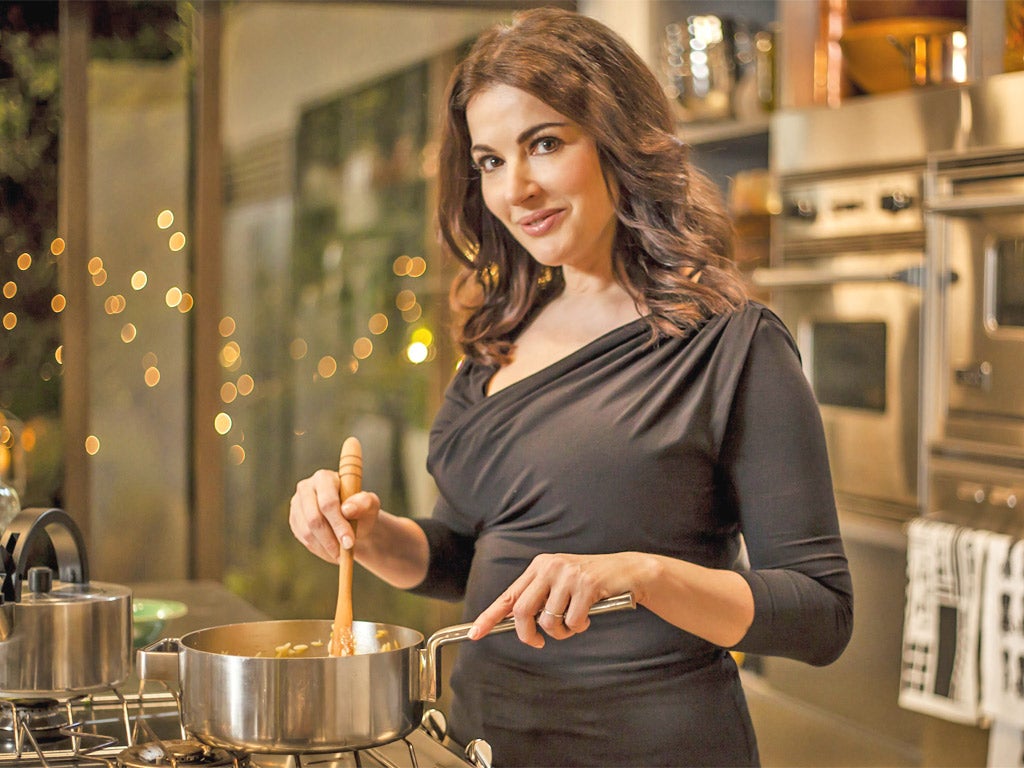TV chef cook book meals 'are less healthy than ready meals'

Recipes by TV chefs including Jamie Oliver and Nigella Lawson are “less healthy” than ready meals, researchers said.
Meals randomly selected from the books of top TV chefs contained "significantly more" fat, saturated fat, energy, protein and less fibre per portion than supermarket ready meals, the study suggests.
Neither the ready meals or the recipes complied with all of the nutritional recommendations by the World Health Organisation (WHO), the study suggests.
Every year, UK residents spend £2.5 billion on ready meals - which are often portrayed as being unhealthy.
Meanwhile, many people's diets are influenced by recipes created by popular TV chefs - which are "sometimes promoted as being healthy".
Researchers from NHS Tees and Newcastle University compared the nutritional content of the meals.
In December 2010, researchers chose the top five TV chef recipe books on amazon.com, including 30 Minute Meals and Ministry of Food by Jamie Oliver, Baking Made Easy by Lorraine Pascale, Nigella Lawson's Kitchen and River Cottage Everyday by Hugh Fearnley-Whittingstall.
They compared the nutritional content of 100 recipes randomly selected from the books to 100 own-brand ready meals from Tesco, Asda and Sainsbury's.
The study, published in the Christmas edition of the British Medical Journal on bmj.com, found that no recipe or ready meal met all of the WHO nutrient intake goals for preventing diet-related diseases.
The TV chef's recipes were also more likely to achieve red traffic light labels than the ready meals.
"Meals based on television chef recipes were less healthy than ready meals," the authors wrote.
"Significantly fewer were within the recommended ranges for fibre density and percentage of energy derived from carbohydrate and fat, and per portion they contained significantly more energy, protein, fat, and saturated fat and significantly less fibre.
"The recipes were also more likely to achieve red traffic light labels according to the criteria of the UK Food Standards Agency (FSA).
"Despite reported efforts from industry to reduce the salt content of meals, only 4% of the ready meals met the WHO recommendation."
The authors suggest that TV chefs who create unhealthy meals should be subjected to a 9pm watershed. They also state that recipe books should contain more nutritional guidance, such as those portrayed on the front of many food products.
A spokesman for Jamie Oliver said: "We welcome any research which raises debate on these issues and in fact Jamie's most recent book, 15 Minute Meals, does contain calorie content and nutritional information per serving for every dish.
"We will soon also be re-launching the Jamie Oliver website with nutritional information on the recipes. However, we would regard the key issue to be food education so that people are aware of which foods are for every day and which are treats to be enjoyed occasionally."
A spokeswoman for Lorraine Pascale said: "Some of the recipes in Lorraine's book are healthy, some not quite so much so.
"There are plenty of salads, soups and light meals as well as the richer dishes.
"Her books and shows to date haven't been about healthy eating, they are about cooking. However, funnily enough, the topic of her next series and book specifically addresses healthy eating."
A Tesco spokesman said: "We recognise our role in making healthy food accessible to everyone, and in giving customers the information they need to make healthy choices.
"We have been cutting levels of salt, sugar and saturated fat across our ranges since 2005 and none of our own brand products contain artificial trans fats or artificial colours or flavours."
A Sainsbury's spokeswoman added: "We continue to reduce salt, saturated fat, fat and sugar in our own-brand products and take the lead on providing clear nutritional information, enabling our customers to make informed choices."
PA
Join our commenting forum
Join thought-provoking conversations, follow other Independent readers and see their replies
Comments
Bookmark popover
Removed from bookmarks